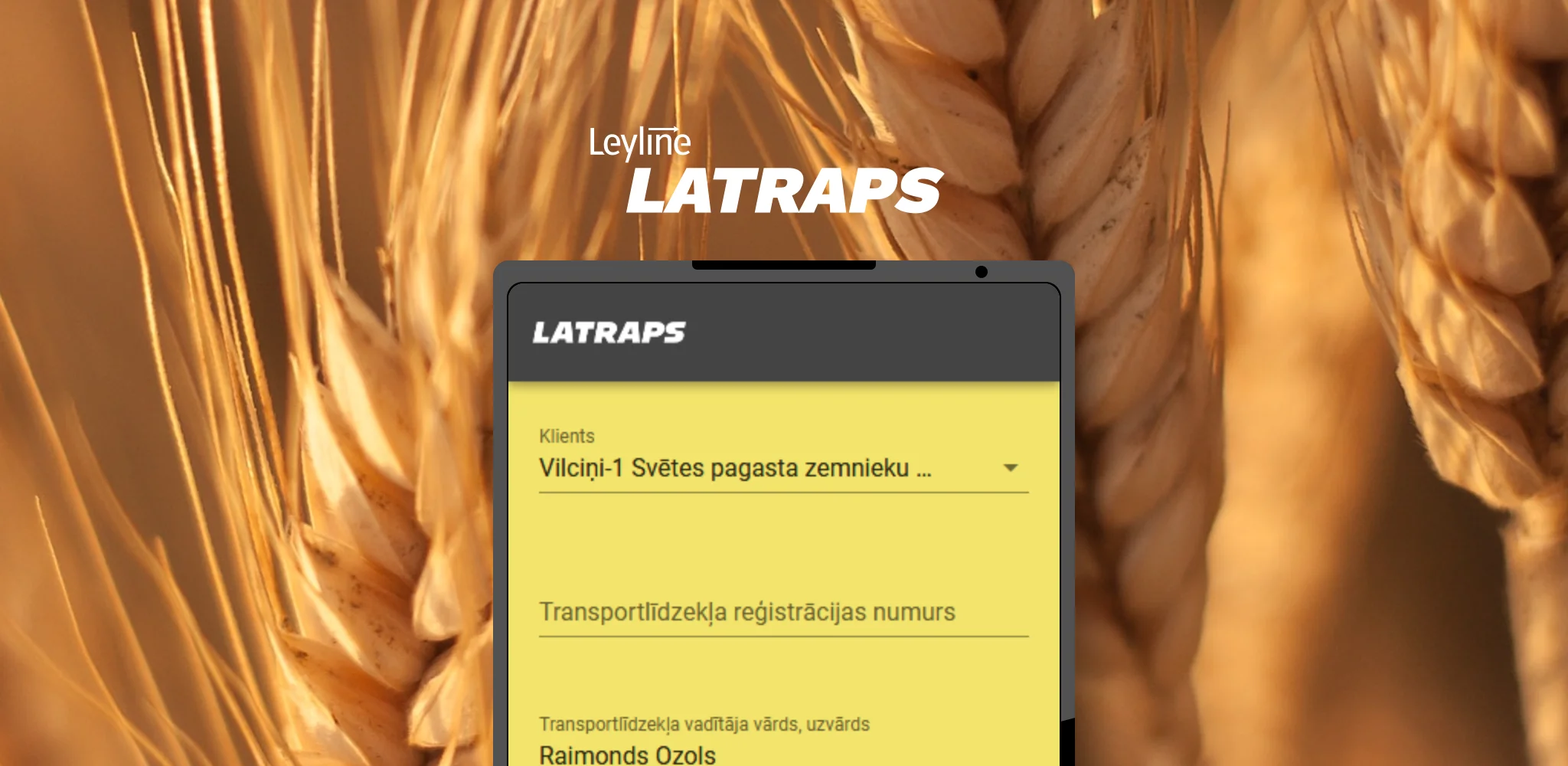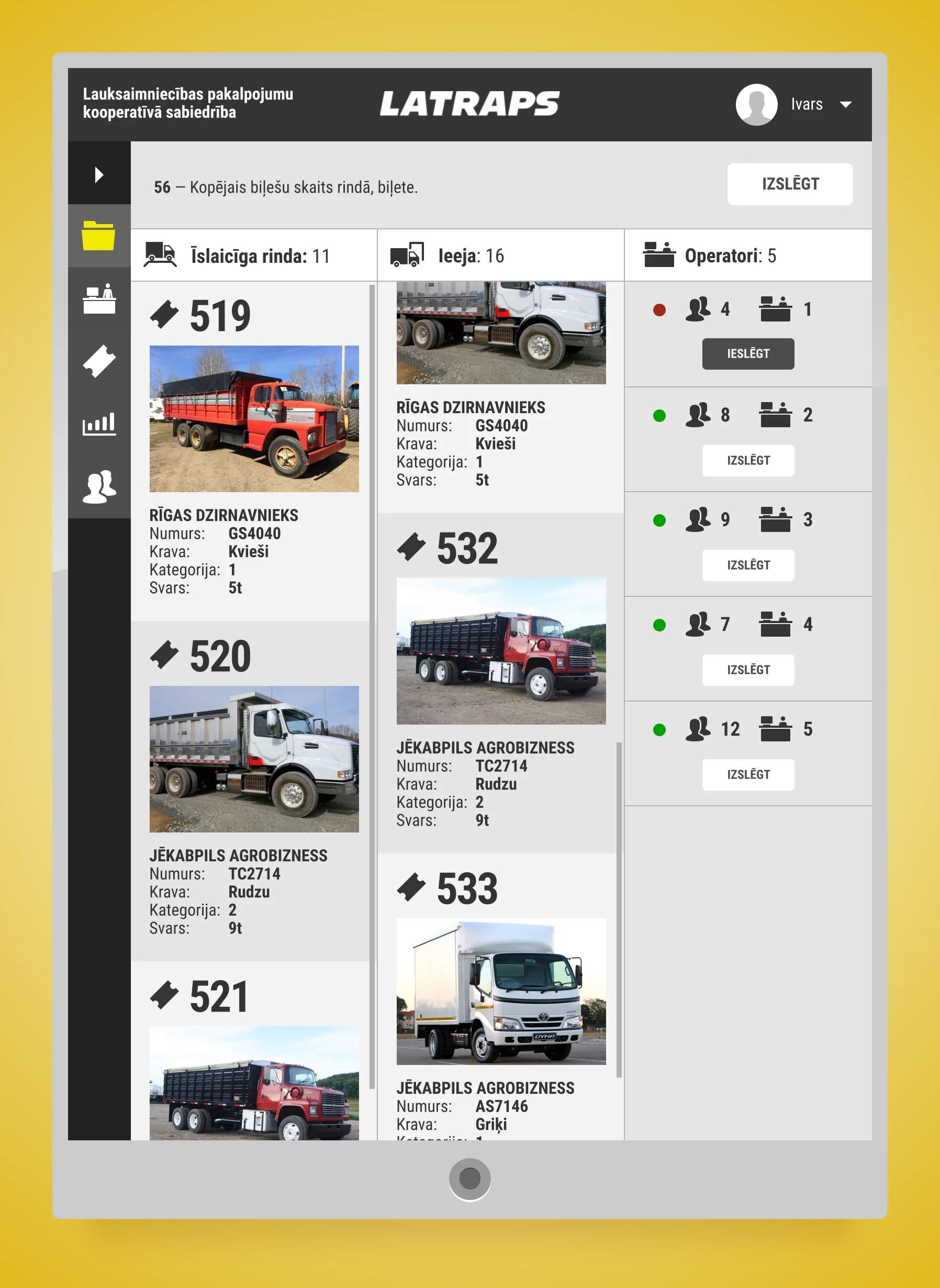Latraps Agriculture
Tractors, Rapeseed, and Digitalization
Some facts
-
5 281
trucks processed in 2019 -
22 006
trucks processed in 2020 -
20 038
trucks processed in 2021. ~23% applied with the mobile phone
- Human interview excluded from the process
- Automatized entry and leaving with the fiscal document automatically printed from the terminal
- Average processing time improved by 2 minutes which allowed to process 185 trucks more at the same time
- The system is fully adopted. Front line employees are happy because they can do more in less time
- Management is happy because they have data to back up decision-making
- Reduced human contact during the COVID-19 pandemic
- Increased serviced vehicle output per day during high season and avoided public roads jamming
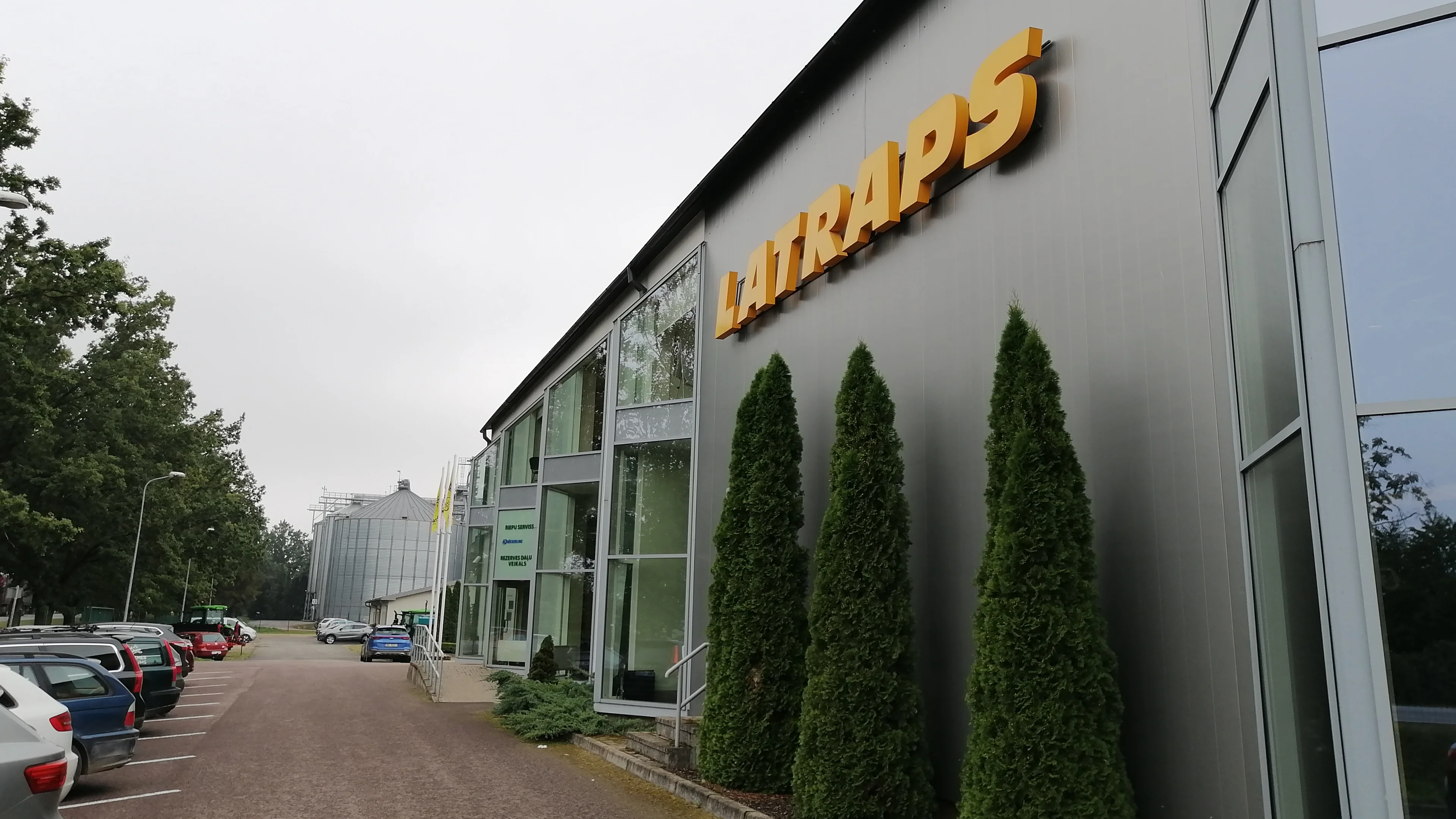
It all started 4 years ago in the city of Eleja near Latvian-Lithuanian border when we met Mr. Mārtiņš Dauksts – technical director of Latraps, the largest agricultural cooperative in the Baltic States.

Mārtiņš is a rare kind of man, a hardworking visionary who dedicated half of his life to developing 10 Latraps elevators across Latvia, building new storage and grain dryers. In Mārtiņš’s vision, Latraps is a completely automated company, where truck drivers self-check-in and self-check-out via smartphone app.
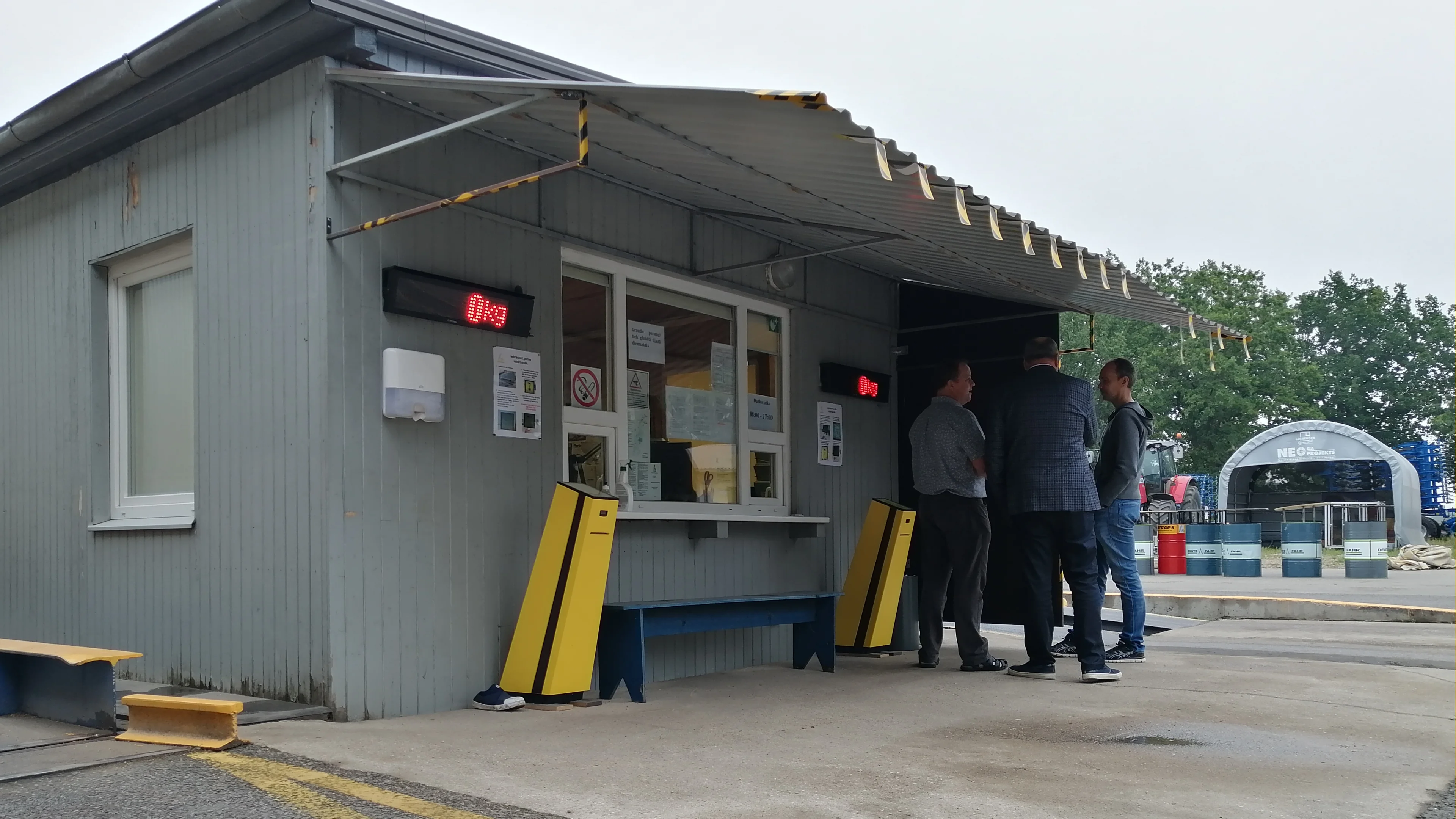
Goals were set
- Automate entry to Latraps territory to speed up the service, improve driver experience and remove driver disputes
- Minimize human involvement in the service process to increase throughput and reduce operational costs
- Gather analytical data to create KPIs and to use it for end-user presentations
- Record photo evidence of the truck number plate and weight readings for dispute resolution
- Digitize paper tickets used for truck management to reduce error margin and gather service data about every service step
- Automate leaving of Latraps territory to speed up the service process
- Develop iOS and Android mobile apps where truck drivers can pre-fill data to avoid crowding at the company entrance, which was increasing service time
Mārtiņš contacted various companies. Only to find out that they don’t have a solution. Then Mārtiņš met Leyline.
After 6 months of meetings, process analysis, and brainstorming we had deconstructed Mārtiņš's vision into the outcome-oriented tasks:
-
Project was divided into two stages. Each stage was to be developed and implemented during the low season (January – May) and put to the test during the high season (June – September).
The main concern was the adoption of the new system by the end-user. To decrease the uncertainty, it was decided to create detailed video and pictorial tutorials for the end-users and start gradually building awareness. Video tutorial is publicly available here (in Latvian):
Project stages
- 2019 2020 1st stage
-
- Developing of photo-proof system and installation of video cameras
- Installation of self-service kiosks with a barcode scanner to identify arriving and leaving clients
- Development of custom interfaces for laboratory workers and pit operators
- Leyline integration with Latraps ERP
- Leyline integration with Scales
- 2021 2nd stage
-
- iOS mobile app development
- Android mobile app development
- Integration with the existing systems
-
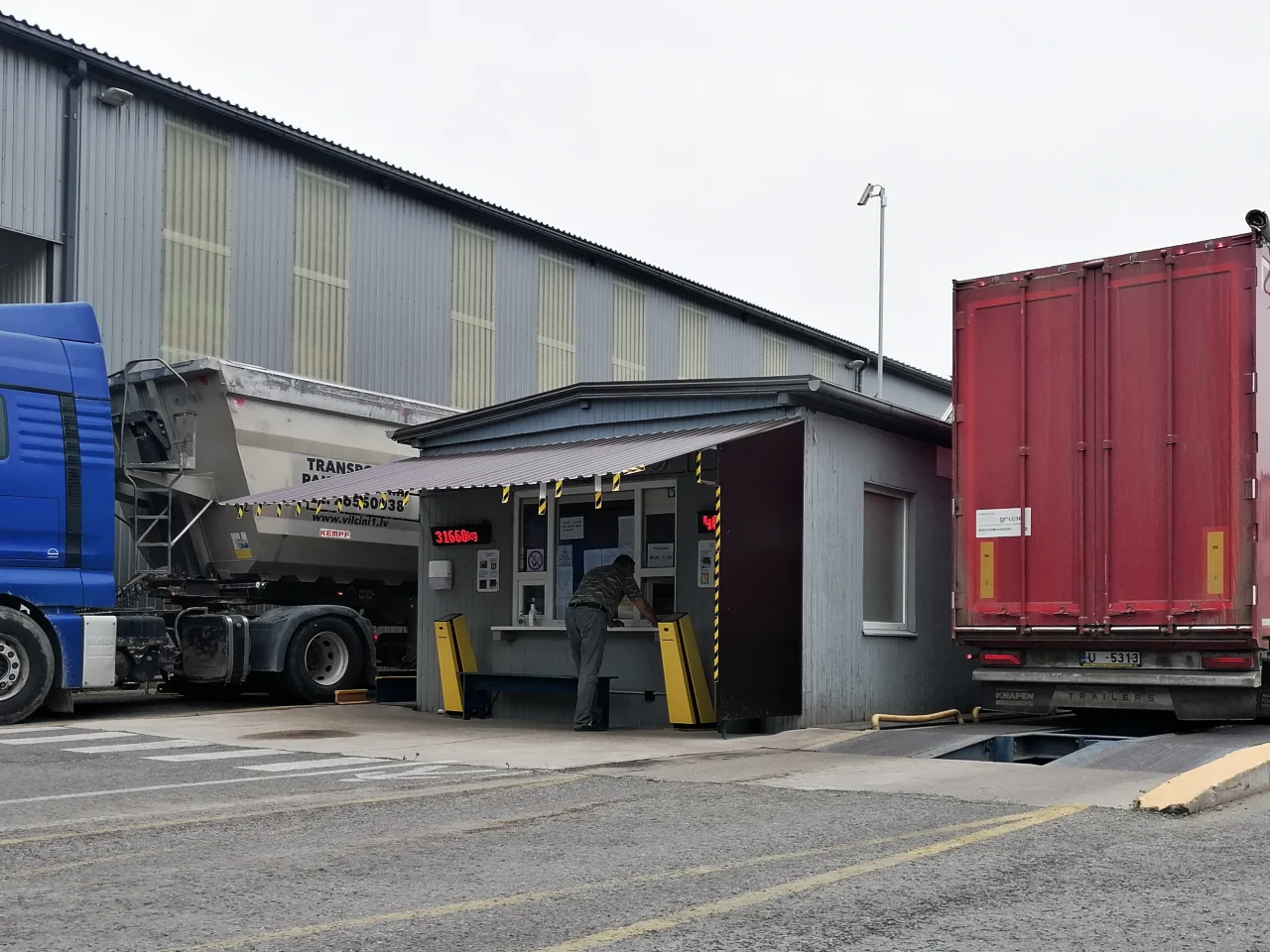
-
Process:
This plan disrupted the decade-long established processes, affecting ten grain complexes with hundreds of employees across Latvia. To improve new system adoption, training videos and detailed instructions were developed and implemented by Latraps.
-
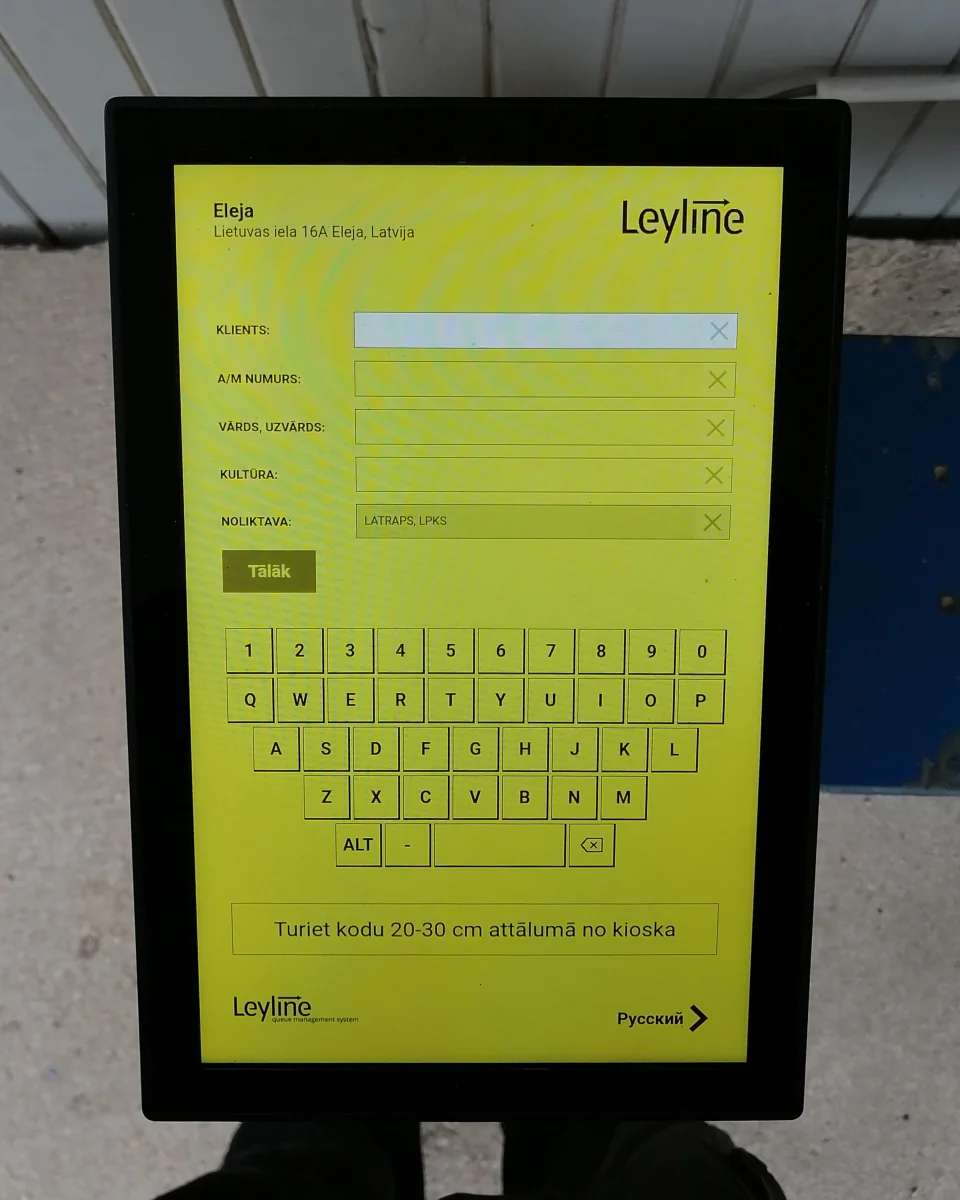
-
Added 9 points
Latvia
- Aizkraukle
- Barkava
- Bauska
- Daugavpils
- Eleja
- Jaunpagasts
- Jekabpils
- Madona
- Saldus



